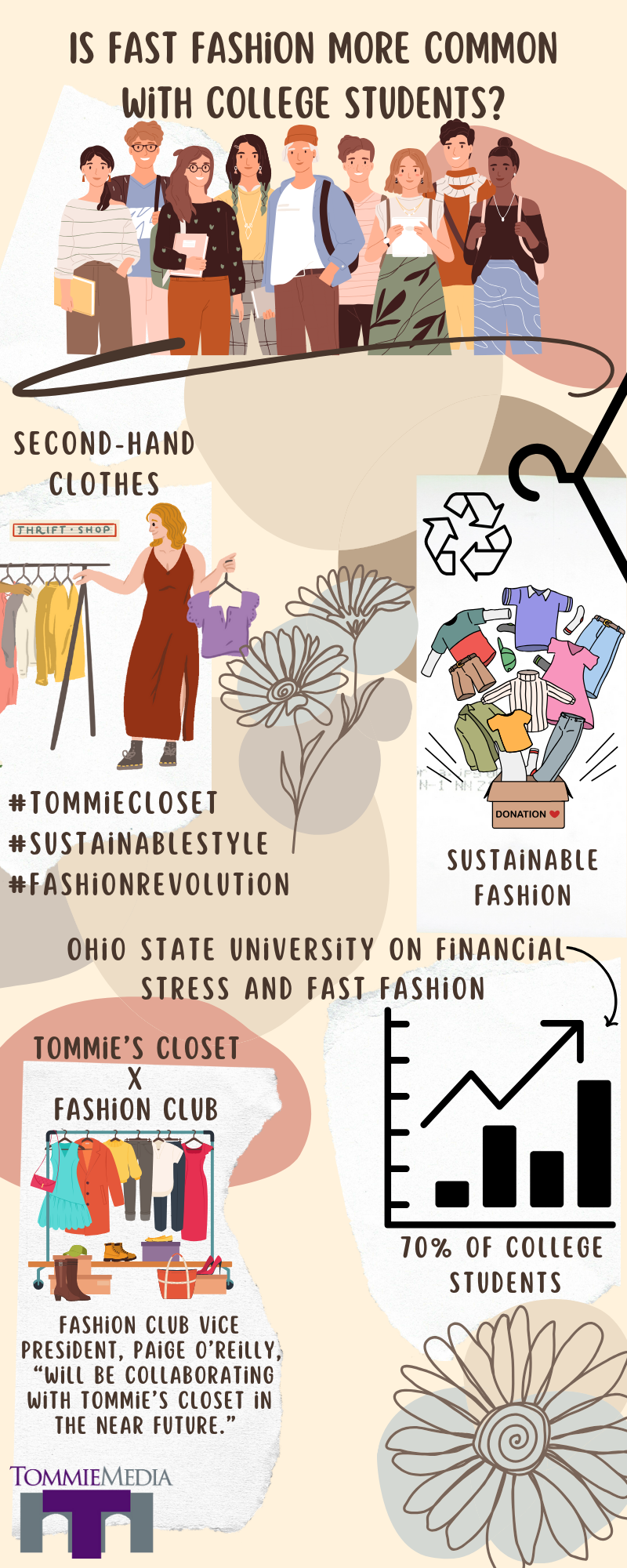
Fashion trends are ever-changing.
In the past few years, college students have witnessed the resurface of low-rise jeans, Uggs and biker shorts at universities across the country.
These fast-paced trends lead to some students purchasing cheap clothing that relies on thin synthetic fabrics, which break down at a heightened rate. As fun as trends can be, are these means of consumption sustainable?
According to a 2021 study conducted by Ohio State University, 70% of college students experience financial stress. This stress often leads them to opt for inexpensive, poorly-made clothing items rather than investing in pieces with long-term value.
Office of Sustainability program manager, Rachel Schauer, said fast fashion may have a strong connection with college students and their limited budgets, but it doesn’t have to.
“If college students are on a budget, I would highly recommend for them to think about using secondhand items,” Schauer said. “An underestimated thing as well is using pieces that you already have in your closet.”
Schauer also promoted Tommie’s Closet, which allows students to shop for free clothes donated by fellow Tommies. Tommie’s Closet is a campus-wide clothing swap system that is free to students.
If students are worried about finding fashionable secondhand attire, St. Thomas’ Fashion Club can help.
Fashion Club vice president, Paige O’Reilly, says they will be collaborating with Tommie’s Closet in the near future.
“Fashion club members are going to come in and help style pieces for people that are looking around,” O’Reilly said. “We are starting collaborations with them this week.”
St. Thomas students can look forward to a fashionable and sustainable future with the help of Tommie’s Closet and Fashion Club.
“I think it’s good to not underestimate everyone’s role in the big picture of fast fashion,” Schauer said. “Everybody can make a difference.”
Cecilia Wallace can be reached at wall1238@stthomas.edu.

